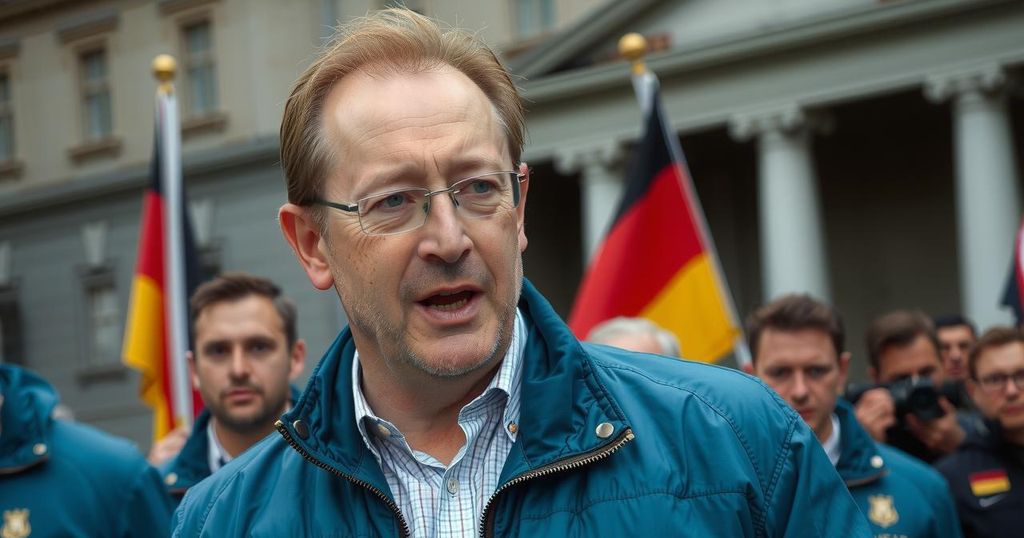Elon Musk’s Controversial Support for Germany’s AfD Sparks Political Outcry

Elon Musk has expressed his support for the far-right AfD party in Germany, claiming it as the country’s last hope against economic downturn and cultural decline. His op-ed sparked controversy, leading to protests from journalists, while politicians criticized his influence as detrimental to democracy. As the AfD gains traction in polls, concerns grow over the normalization of extremist ideas amidst Musk’s apparent business interests.
In a recent op-ed published by the German newspaper Welt am Sonntag, US billionaire entrepreneur Elon Musk reiterated his support for the far-right Alternative for Germany (AfD) party. He claimed that the party represents the last hope for Germany amid perceived economic and cultural decay, asserting that only the AfD could revitalize the country’s economy and implement a “controlled immigration policy”. Musk challenged the label of extremism associated with the AfD, notably mentioning the same-sex partner of the party’s leader, Alice Weidel, to contest claims of neo-Nazism. The publication of Musk’s article sparked significant backlash, resulting in protests from the editorial staff at Welt and the resignation of a senior editor.
Friedrich Merz, the center-right candidate for Germany’s chancellery, condemned Musk’s intervention as unwarranted foreign interference in the electoral process, while Lars Klingbeil, head of the Social Democrats, equated Musk’s motives with those of autocrats like Vladimir Putin, suggesting a sinister agenda to disrupt democratic processes. The German media landscape provides significant freedoms for expressions of opinion; however, the editorial integrity concerns raised by the publication of Musk’s op-ed have implications for journalistic standards in the context of political bias.
Musk’s connection to the conservative-affiliated Welt newspaper can be traced to the influence of its CEO, Mathias Döpfner, who has previously endorsed right-leaning policies and endeavored to shape media narratives in favor of particular political agendas. Moreover, Musk’s business interests, especially with his Tesla factory in Germany, likely drive his advocacy for the AfD’s pro-business platform of reducing regulations and taxes, highlighting how personal gain may intertwine with political endorsements. Thus, Musk’s support could not only embolden right-wing factions but also alter the political landscape in Germany, fostering a shift towards normalization of far-right ideologies.
The article discusses Elon Musk’s controversial endorsement of the far-right political party, Alternative for Germany (AfD), in the context of the upcoming German elections. Musk’s relationship with the AfD is framed around concerns regarding political interference and the potential ramifications of such endorsements on democracy and media integrity. Additionally, the backdrop includes the seeming alignment of Musk’s business interests with the AfD’s economic proposals, thereby drawing attention to the intersections between corporate influence and political endorsement, particularly in democratic institutions.
In summary, Elon Musk’s open endorsement of the Alternative for Germany raises profound questions about the implications of foreign influence on domestic politics and media ethics. As his support draws criticism from leading political figures and media professionals, the discourse reveals a tension between free expression in journalism and the potential for manipulation by influential entities. Furthermore, Musk’s motivations appear to reflect a confluence of economic interests and political strategy, which could lead to a troubling legitimization of extremist viewpoints within mainstream German politics.
Original Source: www.dw.com






